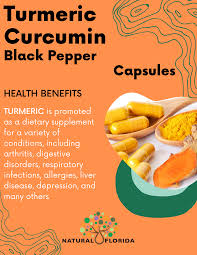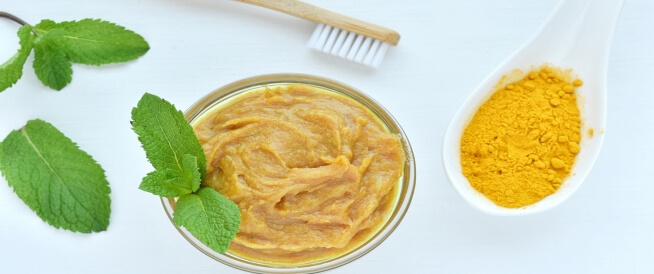
Turmeric or Curcumin is a yellow powder known in English as Turmeric. It is a product of grinding the rhizomes (the part of the stem above and below the soil surface) of a tropical plant spread in India and Indonesia, known scientifically as Curcuma longa. From this powder, the mixture known as curry with a long history is prepared. In the countries of the East, it is the most famous spice, as it gives it a relatively sharp and bitter taste and a distinctive smell due to the presence of volatile curcumin oil.
It has been proven that turmeric has many benefits that encourage us not to ignore it in our diets, the most important of which is helping to solve problems of indigestion, as it works on the flow of bile, which breaks down fats, and it is also a carminative for gases.
Curcumin is also known to be an anti-inflammatory by reducing the level of histamine and alleviating the pain associated with it, especially arthritis.
In addition, it is a traditional treatment for jaundice and chronic sore throat, a disinfectant for the stomach and intestines of parasites, a treatment for diarrhea, fever, headache, bloating, colds, and bronchitis, and a general tonic.
The volatile oils found in curcumin work to prevent bacterial infections in wounds and thus replace antibiotics. Given the previous benefits, researchers in many parts of the world have been interested in this plant, and in recent years they have been able to discover many other health benefits of this plant, including alleviating rheumatoid arthritis pain in the joints and relieving joint pain. It relieves menstrual pain during the menstrual cycle in women, as well as a killer of intestinal microbes, worms, and worms, and a good treatment for dysentery.
Elham cycle has been proven to be a powerful antioxidant, protects the liver from the effects of pollutants, improves its performance, and protects against the occurrence of cancers.
Its ability to reduce cholesterol in the blood and reduce the aggregation of blood platelets has also been confirmed, thus reducing the risk of strokes and heart disease. In other studies, its ability to stimulate appetite and treat indigestion and cases of skin inflammation, Bursitis, has been proven.
Its ability to inhibit the occurrence of skin cancer and colon cancer when used in the early stages of infection has also been confirmed. It also protects the liver from the effects of carbon tetrachloride, which destroys liver cells and is formed as a result of harmful physiological processes in the body. It has also been found that it works to protect the kidneys from oxidation. Its cells contain free radicals in the body.
It is necessary, despite the multitude of these benefits, to take into consideration that the use of curcumin in large quantities and for long periods has some negative effects, including heartburn and the occurrence of intestinal disorders, and the effect of this extends to reducing blood clotting. Therefore, it must be taken with caution by people who take anticoagulant or blood clotting agents as well. When there are gallstones or obstruction in the gallbladder.
Regarding how to use it, it has been known for thousands of years that it is added to many meals, the most important of which is rice, and it is also added to pickles. The appropriate amount of it for daily use has been estimated at about half a gram for an adult. It can be delayed in the appropriate way. It may be added to food or as a powder directly after meals.







